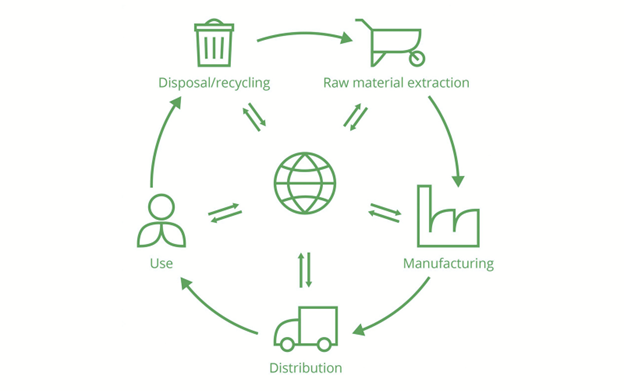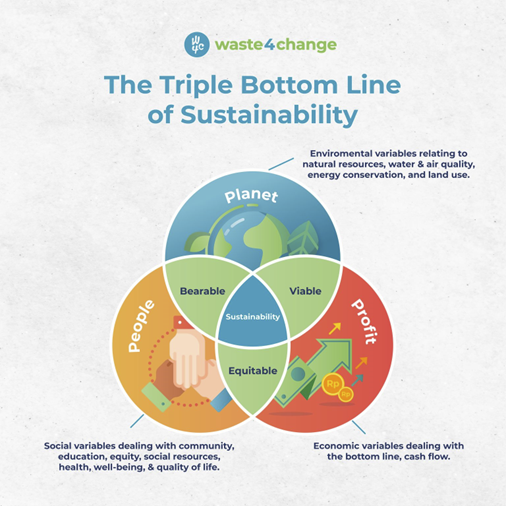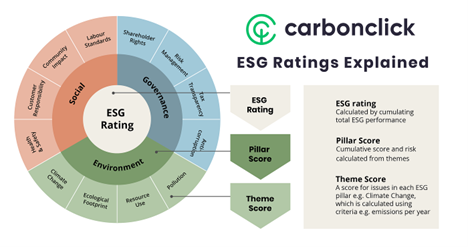Today, how companies operate matters. As such, sustainability has popped up as a key factor for success. Consumers and investors increasingly look closer at how organisations tackle sustainability and integrate sustainability assessments into their strategies.
It’s more than having a couple of green initiatives it’s about having a tangible plan. A structured approach that helps businesses manage their sustainability efforts.
However, it’s not nice to have any more, it’s a compulsory condition to stay competitive and strive in the long run.
Let’s explore what is a sustainability assessment, what being a sustainable business means and how to channel and assess the efforts and resources to reach sustainability.
What Is a Sustainability Assessment?
A sustainability assessment is a blueprint, a tool that companies can use to evaluate their sustainability efforts. Its primary purpose is to provide clarity, direction and methodical procedures to check the level of social responsibility and how green a business’s operations are.
Moreover, it has to convert vague sustainability goals into concrete, measurable actions and create the opportunity to gain a competitive advantage.
From now on, each responsible business will need a sustainability assessment framework, meaning a comprehensive system to enhance its sustainability performance.
A sustainability assessment framework includes evaluations of different aspects of a business’s operations:
- Environmental Impact Assessment.
- Economic Impact Assessment.
- Social Impact Assessment.
Sustainability Assessment Framework Components
Environmental Impact Assessment
This type of evaluation wants to find out how a company intracts with its environment and how its activities impact our planet. In a word, it means understanding a business’s environmental footprint.
To measure your business’s environmental impact, you can use methods like:
- Carbon footprint evaluation. This method determines the level of greenhouse gases (e.g. carbon dioxide) your business’s operations release into the atmosphere. It’s a way of nailing your company’s impact on climate change.
- Energy consumption measurement. Needless to say, businesses are the largest energy consumers via their operations. This assessment wants to evaluate your business’s energy consumption level and identify the consumption patterns within processes.
- Waste generation measurement. The purpose is to minimise the waste generated by businesses’ operations. Such an evaluation aims to identify the types and amounts of waste that your business produces. And spot modalities to reduce or recycle it to diminish the environmental impact.
- Water usage analysis. In some regions, water is scarce, and businesses play their role in its utilisation. Water usage assessment measures how much water your business uses, where, how it is used and if there are opportunities to conserve more water or better ways to use it.
Social Impact Assessment
A sustainability assessment should obviously include the human aspect of a business. And evaluate how your organisation’s practices impact the employees’ lives, stakeholders and communities.
Social impact assessment includes several dimensions:
- Employee welfare analysis. In short, it revolves around whether the company treats its workforce respectfully and fairly. And includes evaluations of factors like employees’ wages, health benefits, working environment, training facilities and overall satisfaction.
- Inclusion and diversity initiatives review. Socially responsible businesses pay close attention to aspects like diversity and inclusion. Such an evaluation checks if your business ensures an inclusive and diverse work environment. If all employees feel valued no matter their race, gender or background differences.
- Ethical practices examination. This assessment verifies your company’s commitment to ethical practices across all departments and operations. It involves measuring the honesty and transparency of communications and marketing and applying ethical standards for all stakeholders.
- Community engagement evaluation. Organisations are not insulated entities, they are part of a community. This method wants to find out how implicated and supportive your business is within the local community that it is part of. It takes into consideration activities like partnerships with charities, volunteer initiatives, contributions to local development programs, etc.
Demonstrating its contribution to the well-being of the local society, your organisation shows that its success is not expressed just in profits but also in a favourable impact on people’s lives.
Economic Impact Assessment
Beyond people and the environment, a business has to be financially profitable. This sustainability assessment measures the financial implications of sustainability initiatives. The scope is to ensure that they have a positive contribution and are achievable from a financial perspective.
The primary components of this assessment are:
- Return on investment for sustainability initiatives. As with any other investment, sustainability efforts should have a positive return. This evaluation measures the return on the resources invested in sustainability – be it eco-friendly or biomaterials, clean energy sources, etc.
- Cost-benefit analysis of efforts focused on sustainability. This assessment determines if the costs generated by implementing sustainable practices are counterbalanced by their benefits. Meaning clarifying if such efforts increase the efficiency of certain operations, if they reduce costs or create new revenue opportunities.
- Financial sustainability in the long run. Sustainability aims to ensure a business exists as long as possible. Its purpose is to check on the impact of sustainable practices on the financial health of a business in the long term. And evaluates factors like resource scarcity, negative reputation, risks related to regulation changes, etc.
- Competitive advantage and opportunities. Environment counsciousness and social responsibility may provide access to new market segments and amplify a competitive advantage. A sustainability assessment like this measures how sustainable practices generate business opportunities and how they help differentiate from the competition.
How to Assess Sustainability? Popular Tools and Methods
Life Cycle Assessment (LCA)
When speaking about sustainability assessment tools, one approach stands out – Life Cycle Assessment. This method measures the environmental impact of products or services on the entire path from production to delivery.
A product’s life cycle includes several stages:
- Raw material extraction
- Manufacturing
- Distribution
- Usage
- Recycle

LCA analyses each stage in detail to determine the environmental impact of resource use, energy consumption, waste generation and emissions.
Here is what happens at each life cycle stage:
- Extraction and production. It’s the starting point of the process that evaluates the impact on the environment linked to the extraction of raw resources and manufacturing procedures.
- Distribution and use. Once the product is made, the next phase assesses the impact throughout the distribution chain and usage. Essentially, it means evaluating aspects like transportation and the associated energy consumption, energy requirements to function, potential impacts on consumers, etc.
- Removal from usage. Being the final stage, it determines the environmental impact of the product when it is not used anymore and reaches the end of its life. This involves aspects like disposal, potential waste, and recycling.
Why is LCA helpful?
Providing a holistic overview helps your business pinpoint the most significant environmental impacts during the product lifecycle.
By identifying these spots, your organisation is able to make data-backed decisions to
- reduce resource and energy consumption,
- optimise the process,
- and streamline the overall sustainability of your products.
Real-world example. For instance, a company that produces smartphones can assess via LCA the environmental impact of their materials extraction and manufacturing operations.
Plus, the influence of the energetic consumption during use and the item’s recyclability when not used anymore.
Such insights empower the business to improve the sustainability of their choices at each level. Like desigining products considering the recycling possibilities or choosing materials from sustainable sources.
Triple Bottom Line (TBL)

Source: Waste4change
TBL approach helps your business evaluate not only its financial performance but also its environmental and societal impact. In a word, how it balances profit with the planet and people.
As the name suggests, Triple Bottom Line examines three dimensions – economic, social and environmental sustainability.
- Economic sustainability. As expected, this dimension refers to the overall financial health of your business, the company’s profitability and revenue expansion.
- Environment sustainability. This is about the ecological impact of your business’s operations. Includes evaluations on carbon footprint minimisation, energy consumption, waste management, etc.
- Social responsibility. It examines the interaction of your business with its employees, local communities and the society at large. As discussed above, it considers factors like employee welfare, involvement in community projects, implementing ethical business practices, etc.
Simply put, the Triple Bottom Line approach stimulates organisations to aim for a balance – to be profitable and environmentally conscious while assuming social responsibility.
Real-world example. A pharma manufacturer that produces drugs uses TBL.
They will obviously concentrate on maximising their profits and assume the implementation of ecological practices like improving the recycling procedures, medicinal waste treatments, etc. And fair wages for their workforce.
Environmental, Societal and Governance (ESG) Criteria

Source: Medium
This is another holistic lens to assess your overall business performance. As the name indicates, it covers three main pillars environment, social and governance factors.
ESG is an effective tool that encourages organisations to pursue their profitability goals while contributing to social well-being and being responsible guardians of our planet Earth.
Environmental factors. Criteria related to the ecological impact of your company. Encompasses aspects related to energy efficiency, resource conservation actions, carbon footprint, and waste management approaches.
Social factors. Assess the interaction of your company with humans inside and outside the organisation. It examines elements like labour standards and practices, employee welfare, social responsibility endeavours, and involvement in community initiatives.
Governance factors. Governance relates to the policies and internal decisional structure. And evaluates components like financial reporting transparency, board diversity, risk management, ethical business approaches and regulations compliance.
ESG delivers valuable insights for decision-making
ESG tools have advanced capabilities to reveal actionable insights that enable leaders to make data-backed decisions. And mitigate risks, improve brand reputation, entice like minded customers and investors. In a nutshell, fosters sustainability in the long run.
To obtain these powerful insights, you need a technology that has the capabilities to spot and deliver them. Symanto is such a solution.
Symanto is AI-powered and uses a combination of NLP technology and cutting-edge data sourcing and analysis capabilities to help businesses acquire a complete panorama of their ESG risks and opportunities.
This overview is realised using publicly available sources (reports, articles, social media, reviews, and other pertinent data).
Leaders can employ an ESG scan made by Symanto to compare their organisation’s performance in this area with that of competitors.
They can identify emerging trends, areas of improvement and occasions to approach new consumer segments.
Symanto’s characteristics that are relevant for ESG criteria:
- Data collection from multiple data sources.
- AI-powered technology.
- Industry-specific.
- Personalised reporting.
- Multilingual.
How to Implement a Sustainability Assessment Framework
To correctly set up a sustainability assessment framework, you must follow some strategic phases to empower your business to improve its eco-efforts.
The primary steps to consider are:
Set clear goals
Clarity is the first requirement of any solid strategy. Your company should establish its sustainability objectives based on its core values and in accordance with the industry standards.
This initial step outlines your company’s primary focus in terms of economic, social and environmental sustainability.
Data gathering methods and tools
Data is the core pillar of any assessment.
Needless to say companies need powerful tools able to delve into each relevant aspect of the sustainability assessment, namely social, environmental and economic.
For environmental aspect evaluation, you may need an application that calculates the carbon footprint or tracks energy consumption.
Social impact measurement may use interviews, surveys, text analysis or HR analytics tools.
Economic assessment is the most common and usually employs financial analysis software or metrics that evaluate the ROI of sustainability initiatives.
Leverage advanced technology
In our tech-driven world, you can’t execute a sustainability assessment without a solid data collection and analysis solution.
Today, your business has the opportunity to access top-level technologies for more accurate and fast sustainability assessments. Such tools automate data management and analysis and, more importantly, can uncover practical insights to improve decisions and strategies.
And, finally, drive the much-needed change and direction towards a sustainable future.
Involve stakeholders in the decision-making process
Integrating stakeholder engagement into the activities of sustainability assessment, your company welcomes a large variety of insights and perspectives. And ensures that its sustainability efforts are aligned with the expectations and concerns of all parties.
Each segment of stakeholders has its viewpoint. And they can be:
- Customers express concerns about the products’ sustainability and resource consumption.
- Community fellows are stressing the local impact.
- Employees ask for better work conditions and practices.
Opting for such a collaborative approach highlights the validity of the assessment and opens the gates for superior sustainability strategies.
Top Tips to Adress in Your Sustainability Assessment
1. Obeying national and international standards
Does the company comply with and respect the rules and boundaries of national or international regulators? This consideration is an absolute bare minimum.
As a key performance indicator, consider measuring the quantity of fines or infractions against the company.
2. Use and disposal of raw materials
What raw materials does the company use? Are they sourced responsibly and locally? How are they produced? Does the production of the materials expose workers to toxic chemicals?
What waste and emissions do they generate? How long do the materials take to decompose into organic matter once disposed of?
3. Labour standards
What regulations are in place to protect the health, safety and well-being of employees? How many workplace incidents have occurred? How were workplace complaints resolved?
You can use Symanto’s natural language processing (NLP) AI technology to measure employee sentiment on social media and through employee review sites such as Glassdoor.
4. Supply chain
As well as running checks on labour standards within your company, you’ll also need to consider standards across the entire supply chain, from sourcing raw materials to distribution.
Do your company’s suppliers share the same commitments to labour protection and the environment?
5. Social impact
In a globalised system of outsourced production, there are increased social risks. What is the impact on local territories and communities, and how is your company implicated in shifting international relationships?
6. Life cycle and disposal
What is the average duration of the product? Once it is no longer fit for purpose, can it be easily repaired by purchasing separate parts?
How safe is it to dispose of? Can it be recycled or reused?
How to Spot (and Avoid) Greenwashing
Greenwashing happens when a company or organisation falsifies sustainability claims or makes cynical attempts to deceive consumers into believing that the company’s products or services are environmentally sound.
It’s easy enough to write sustainability into your corporate communications and publish them on your website. But, it requires a lot more commitment and dedication to take action and enact meaningful change in your work processes.
Therefore, taking corporations’ word or sending out box-ticking ESG surveys isn’t enough. More must be done to mitigate the legal risks of unsubstantiated sustainability claims.
In search of more reliable and consistent data for sustainability assessment, companies are turning to cutting-edge AI technology to weed out the greenwashers (e.g. their competitors).
Symanto uses advanced AI technology and natural language processing (NLP) to expedite the process of extracting sustainability and social responsibility claims from corporate communications.
Compare this information against year-on-year data, such as carbon footprint emissions, international standard infractions, and employee satisfaction, to see if they’re living up to their pro-social and pro-environmental promises.
NLP can also be used to rapidly identify emerging risks.
For example, in recent years, social movements such as Black Lives Matter and #MeToo have led many companies to make significant policy changes.
NLP technologies and machine learning can identify sudden increases in topic mentions and alert you early on to help you protect your investment.
Get Started With Symanto
Symanto technologies have diverse applications, including supporting ESG and due diligence reporting. Get in touch or book your free personalised demo to learn more about our services and tools.
Sustainability Assessment Challenges
Considering that sustainability assessment is quite a new approach, it comes with several hurdles. But they can be surpassed with the correct strategies.
Here are some common challenges your business will face:
Data gathering complexity
Collecting accurate and exhaustive data from a multitude of sources and across several aspects is most often problematic because of the assortment of metrics.
Solution. Invest in a data collection and analysis AI-powered tool to help you manage sustainability-related data.
Resource limitations
In the economy, the resources are never plentiful. All businesses, particularly small ones, face budget, expertise, or tech stack constraints that are required for detailed sustainability assessments.
Solution. Execute first the initiatives that have the most noteworthy impact. Look for advantageous partnerships, pursue external specialised help to streamline costs, and explore grant options.
Cross-department integration
Collaboration across divisions or departments and alignment to implement sustainable practices can be difficult.
Solution. Create a culture of sustainability throughout the company, promote open communication among departments, and provide support and training where needed.
Corporate Sustainability Assessment Examples
Some case studies from prominent brands show how they have successfully implemented sustainability assessment frameworks. And the positive impact that these changes had on their operations.
Patagonia – Environmental Impact Assessment
Patagonia is an international outdoor apparel company. Their strategy was to implement an exhaustive Life Cycle Assessment and calculate the ecological impact of their products.
The assessment revealed that most part of their environmental footprint happened in the production phase (to be expected otherwise). Consequently, they concentrated on using more recycled materials, diminishing the quantity of water and improving their labour practices.
Being transparent about their LCA’s results corroborated their commitment to implement changes, appealed to a larger environmentally conscious audience and reinforced brand loyalty.
Unilever – Implementation of Triple Bottom Line
Unilever is a global consumer goods conglomerate and decided to use TBL to measure its environmental, social and financial performance.
It’s no news that they established ambitious goals to reduce their footprint and improve the health of millions of consumers. Via their Sustainable Living Plan, they reduced carbon emissions, energy and water consumption and waste. Moreover, they have saved €99m since 2008.
Plus, they positively impacted society’s evolution by promoting women to management positions in their supply chain.
In a nutshell, they reinforced their brand reputation, reduced costs and propelled innovation.
Microsoft – ESG criteria implementation
Adopting the Environmental, Social and Governance (ESG) framework aimed to evaluate the overall performance and go beyond financial KPIs.
At Microsoft, they focused on optimising energy consumption, giving preference to renewable energy sources, reducing carbon footprint and investing in sustainable technology solutions.
They also adopted diversity and inclusion policies and set goals to uplevel the representation of underrepresented groups in leadership roles.
By integrating ESG criteria into their strategies, they claimed their commitment to sustainability and earned the confidence of their clients and investors.
Advantages of Sustainability Assessments
Implementing a structured sustainability assessment framework offers a series of benefits that companies should profit from:
Better decisions backed by data and actionable insights
Sustainability assessments usually deliver insights related to the operational processes of a business. Consequently, they may lead their strategies based on sustainability goals and economic viability.
For example, if these insights reveal there is high energy consumption, the leadership will eventually consider tactics to reduce it, like upgrading to an energy-efficient solution. Further on, the company will register significant cost savings and a shrunk environmental impact.
Improved risk management and business resilience
A sustainability assessment plays the role of a safeguard against future risks. Identifying vulnerabilities early empowers businesses to act proactively and mitigate risks.
For instance, comprehending the risks associated with the dependence on fossil fuels allows companies to prepare and transition to alternative energy sources and prevent future disruptions.
Regulatory compliance
Environmental and social regulations are becoming stricter. Implementing a structured sustainability assessment ensures compliance with existing regulations and prepares the business for upcoming regulatory modifications.
Such a proactive action spears the company of potential future penalties and operational disturbances.
Enhanced customer loyalty and brand reputation
Consumers are more and more eco-conscious and will prioritise brands that embrace social and environmental responsibility.
Adhering to these standards will increase the loyalty of their clientele. And attract like-minded partners, investors and employees.
Competitive edge and innovation
Structured sustainability assessments force businesses to find creative solutions to their challenges, thus driving innovations.
It’s pretty standard for companies that commit to sustainable practices to pioneer innovative approaches, services, or products. And innovations provide an edge over the competition.
Take Away
Integrating a structured sustainability assessment framework into your business’s strategy reinforces the overall company position. Because it ensures compliance, improves decision-making, strengthens brand reputation and builds a more sustainable future.

